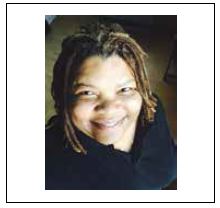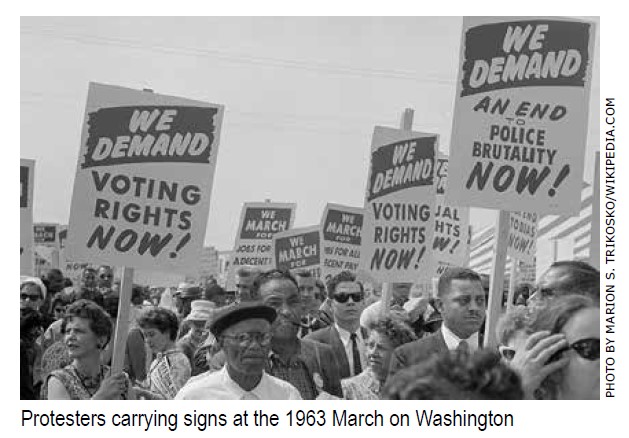
By Andrea Shorter–
“Earlier today, we heard the beginning of the Preamble to the Constitution of the United States: ‘We, the people.’ It’s a very eloquent beginning. But when that document was completed on the seventeenth of September in 1787, I was not included in that ‘We, the people.’ I felt somehow for many years that George Washington and Alexander Hamilton just left me out by mistake. But through the process of amendment, interpretation, and court decision, I have finally been included in ‘We, the people.’ Today I am an inquisitor. An hyperbole would not be fictional and would not overstate the solemnness that I feel right now. My faith in the Constitution is whole; it is complete; it is total. And I am not going to sit here and be an idle spectator to the diminution, the subversion, the destruction, of the Constitution.”
These words were spoken by the late, legendary U.S. Representative Barbara Jordan, of the state of Texas on June 24, 1974, in her statement to the House Judiciary Committee regarding the impeachment of President Richard Nixon. In the Congressional record of history, these words reverberate in the annals of great oratory history, forged as forever pertinent, and immediate to the ongoing discourse about whom, why, and how we are each included—or excluded—in the American democratic franchise.
Herself an African American woman, and, according to some historical accounts quite possibly LGBTQ, Jordan from her southern Congressional seat declared in eloquent force that while the privileged rule of white male founders apparently did not see her as being anywhere near materially, spiritually, or ideally included in the sweeping grandeur of “We, the People,” it was by adherence to Constitutional charge itself by which she was eventually and rightfully included in “We, the People,” and, ideally all of the rights and privileges granted as such.
The right to vote is and should always be central to the rights and privileges of the idea, notion, and realities of what it means to be “We, the People.” Now, 47 years and one month after Barbara Jordan’s indelible statement before the congress, we see in her home state of Texas and at least 13 other states, state legislators and Republican governors working round the clock to convene, pass, and sign into law some of the most restrictive and subversive bills clearly targeting historically disenfranchised voters, essentially attempting to dilute, degrade, and deter their place in “We, the People.”

With literally hundreds of bills in play in different states and at different stages of legislative review and passage, aiming to either restrict or expand voter-by-mail usage, in-person voting hours, voter identification, mail ballot drop boxes, the ability to drink or snack while waiting in line to vote, etc., it’s difficult to keep up with what’s what and where. As a helpful and up-to-date resource, the Brennan Center for Justice provides one of the most easy to understand tracking sites ( https://www.brennancenter.org/ ). It maps state-by-state legislation and stages and impacts of both efforts to restrict and expand voter rights and access.
Perhaps not surprisingly as those engaging in the American democratic franchise grow more diverse as people of color, as women, as non-Anglo immigrants, as LGBTQ identified, and more Democratic partisan represent more of “We, the People” than ever possibly imagined (or desired) by the Anglo-male framers of the 16th Century—especially the backlash after the election of the first Black president, and perhaps to some extent the first Black Asian female vice president—do we see such aggressive, overt legislative movements afoot to restrict the voter rights, access, and representation of this growing non-white, non-authoritarian leaning majority-minority in the idea of free and open elections.
It should go without saying that LGBTQ identified and concerned voters have a stake in this episode of dangerous absurdity to restrict voter rights. While we are yet to be granted full federal protections against discrimination. we do have the right to vote. Restrictions relative to voter identification for transgender voters are perhaps the most salient obstruction of all. Obviously, passage of the For the People Act would help to supersede state-enacted laws that seek to blunt the various forms of voter restrictions and discrimination underway. We know that we can count on our California congressional and senatorial leaders to continue fighting for passage of the For the People Act, which has expectedly passed through the Congress, but is stuck or blocked in the Senate.
Meantime, in response to this perilous threat to voter rights, Vice President Kamala Harris is helping to spearhead the Democratic National Committee’s “I Will Vote” campaign, a $25 million investment to support efforts to protect voting access in advance of the 2022 midterm elections, which could upset the Democratic majorities of the House and Senate. The $25 million will be invested in the tools and technology to register voters, educate, and protect voters, mostly in those states with Republican dominant legislators sponsoring the slew of voter restriction bills. After the recent Supreme Court ruling to uphold restrictive voting laws in Arizona, it is of utmost urgency that the DNC and the offices of the president and vice president do what they can to help protect voters.
Foreign interference in American elections might have nothing on the hell hath no fury manipulation of voting and representational rights of the historically disenfranchised by those hell bent on preserving their diminishing currency at all costs. For all of their whining and crying about “cancel culture” and “leftist plots” to censor conservative, conspiracy-laden free speech in social and mainstream media, state-by-state legislative movements to subvert voter rights would be the ultimate cancelation plot.
While we can enjoy California as a state that seeks expansive voting rights for a vastly diverse population, staying abreast of the status of voter rights across the country has become a part and parcel duty of voters, and civil rights activists everywhere. Without unfettered voter rights and access, the inclusion of historically disenfranchised people, including LGBTQ people, in the idea of “We, the People” will be as initially elusive as Barbara Jordan alluded to in her famous words, in another famously perilous time of crisis in our history.
Andrea Shorter is a longtime Commissioner for the City and County of San Francisco, now serving on the Juvenile Probation Commission after 21 years as a Commissioner on the Status of Women. She is a longtime advocate for gender and LGBTQ equity, voter rights, and criminal and juvenile justice reform. She is a co-founder of the Bayard Rustin LGBTQ Coalition, and was a David Bohnett LGBT Leaders Fellow at the Harvard Kennedy School of Government.
Published on July 15, 2021
Recent Comments